
Allied Health courses in Western Australia
Course providers in Western Australia
The following providers offer Allied Health courses in Western Australia.




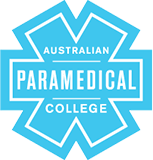








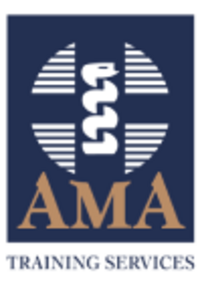



















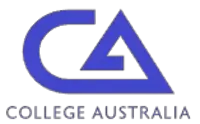



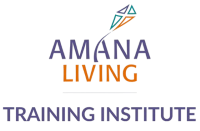
















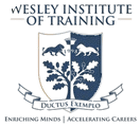
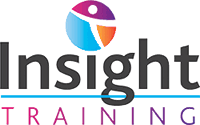




Career Pathfinder
Skills shortages + AI Exposure
Discover in-demand careers and understand how each role may be impacted by AI and automation.
- See in-demand occupations across Australia
- Check AI Exposure ratings
- Compare training duration and average income
Common questions
Occupational therapists help patients perform tasks in daily life, while physiotherapists help patients improve their movement, strength and function. The term occupation refers to everyday life tasks, while physiotherapy refers to physical therapy. Both are science-based allied health roles that aim to improve quality of life through prevention, maintenance and treatment.
 Stephen Charlton
Stephen Charlton
You can become qualified to work as an occupational therapist by completing one of the following degrees, depending on your educational pathway:
- Master of Occupational Therapy (postgraduate degree)
Average duration: 24 months - Bachelor of Occupational Therapy (Honours)
Average duration: 4 years - Bachelor of Occupational Therapy
Average duration: 4 years
 Stephen Charlton
Stephen Charlton
You can become qualified to work as a physiotherapist by completing one of the following degrees, depending on your educational pathway:
- Doctor of Physiotherapy (postgraduate degree)
Average duration: 3 years - Master of Physiotherapy (postgraduate degree)
Average duration: 24 months - Bachelor of Physiotherapy (Honours)
Average duration: 4 years - Bachelor of Physiotherapy
Average duration: 4 years
 Stephen Charlton
Stephen Charlton
Yes, you need to complete an accredited degree to work legally as an occupational therapist or physiotherapist in Australia. The two core pathways are completing a bachelor’s degree or a postgraduate degree. The Occupational Therapy Council of Australia and Australian Physiotherapy Council are responsible for accrediting such courses.
 Stephen Charlton
Stephen Charlton
Yes, overseas-qualified practitioners can work in Australia by registering with the Occupational Therapy Board of Australia or Physiotherapy Board of Australia. Practitioners who are currently registered with the Occupational Therapy Board of New Zealand or Physiotherapy Board of New Zealand can apply directly for Australian registration. Other overseas-qualified practitioners have to fulfil the requirements listed on the relevant webpages of the Occupational Therapy Board of Australia and Physiotherapy Board of Australia.
 Stephen Charlton
Stephen Charlton
If you have already completed an approved degree in a different discipline, you can gain an accredited postgraduate degree to become qualified to work as an occupational therapist or physiotherapist. Examples of such degrees are a Master of Occupational Therapy, Master of Physiotherapy and Doctor of Physiotherapy. Postgraduate degrees in these fields may have additional entry requirements, including but not limited to health-related prerequisite subjects.
 Stephen Charlton
Stephen Charlton
In some cases, completing vocational education and training (VET) in a related discipline can allow you to meet the entry requirements for a bachelor’s degree in these fields. Entry requirements vary between educational providers. Some providers offer a VET entry pathway with a minimum of a Certificate IV, but others require a minimum of a diploma or advanced diploma. Some providers do not offer a VET pathway for these courses at all. Therefore, it’s wise to confirm the entry requirements for your desired bachelor’s degree before starting a VET course.
 Stephen Charlton
Stephen Charlton
In addition to completing an accredited degree, occupational therapists and physiotherapists will need to register with the Occupational Therapy Board of Australia or Physiotherapy Board of Australia to work in Australia. The Australian Health Practitioner Regulation Agency (AHPRA) administers practitioner registration on behalf of these boards. There are different requirements to gain registration for Australian-qualified practitioners, New Zealand-registered practitioners, and other overseas-qualified practitioners.
 Stephen Charlton
Stephen Charlton
Career paths for these professions include independent contracting, starting a practice, working in community care, paediatrics, mental health, rehabilitation, disability, medical or aged care sectors).
 Stephen Charlton
Stephen Charlton
Jobs and Skills Australia reports that the median full-time weekly earnings for occupational therapists and physiotherapists in 2024 are $1,526 and $1,710, respectively. These figures can be contrasted with Australian workers of all occupations, who earn a median full-time weekly income of $1,697.
 Stephen Charlton
Stephen Charlton
There is a significant demand for occupational therapists across Australia. Jobs and Skills Australia’s Occupation Shortage List indicates that the labour market had a shortage of occupational therapists across all states and territories from 2022 to 2024.
 Stephen Charlton
Stephen Charlton
There is substantial demand for physiotherapists in Australia. Jobs and Skills Australia’s Occupation Shortage List indicates that the labour market experienced a shortage of occupational therapists and physiotherapists in most states and territories from 2022 to 2024.
 Stephen Charlton
Stephen Charlton
Working as an occupational therapist or physiotherapist comes with the satisfaction of directly helping to improve patients’ quality of life. Furthermore, the job market is promising, as Jobs and Skills Australia reports there is significant labour market demand for both professions. The future outlook is also positive, as Jobs and Skills Australia reports that the annual employment growth in 2024 for occupational therapists and physiotherapists is 2,200 and 4,100, respectively.
 Stephen Charlton
Stephen Charlton
Further reading


What can you do with a Certificate IV in Allied Health Assistance (Physiotherapy)?
3rd March 2022
What can you do with a Certificate III in Allied Health Assistance?
8th January 2020All courses
- HLT33021 Certificate III in Allied Health Assistance
- HLT47321 Certificate IV in Health Administration
- CHC43315 Certificate IV in Mental Health
- CHC53315 Diploma of Mental Health
- HLT52021 Diploma of Remedial Massage
- HLT41120 Certificate IV in Health Care
- HLT54121 Diploma of Nursing
- HLT47715 Certificate IV in Medical Practice Assisting
- Bachelor of Speech Pathology
- Bachelor of Medical Studies / Doctor of Medicine
- HLT43021 Certificate IV in Allied Health Assistance (Communication and Swallowing Support)
- Bachelor of Physiotherapy
- HLT43312 Certificate IV in Medical Practice Assisting
- Bachelor of Speech Pathology (Honours)
- BSB31112 Certificate III in Business Administration (Medical)
- Bachelor of Medical Science
- Master of Clinical Exercise Physiology
- HLT43015 Certificate IV in Allied Health Assistance
- Bachelor of Clinical Exercise Physiology
- ACM40818 Certificate IV in Farriery
- HLT33115 Certificate III in Health Services Assistance
- Bachelor of Vision Science
- Bachelor of Biomedical Science
- CHCSS00131 Individual Support - Home and Community (Ageing)
- BSB40212 Certificate IV in Business (Health Practice Managers)
More about Allied Health courses
Western Australia offers a diverse range of Allied Health Courses catering to both beginners and experienced learners. Whether you are just starting out in the healthcare field or looking to advance your career with additional qualifications, there are ample opportunities available. With a total of 26 courses, including essential programs like the Certificate III in Allied Health Assistance and advanced options such as the Diploma of Mental Health, students can find a suitable pathway to meet their career ambitions in the health sector.
For those new to the field, courses like the Perform Electrocardiography (ECG) and the Doctor of Medicine provide a solid foundation in Allied Health concepts and practices. These beginner courses are designed to give learners the skills and knowledge necessary to thrive in various healthcare environments. Notably, institutions such as SDS offer training for the ECG certification, making it accessible for students in Perth and surrounding regions.
Experienced learners can elevate their qualifications with advanced courses such as the Certificate IV in Health Care or the Bachelor of Nursing. Established providers like Curtin University and ECU are well-regarded for their comprehensive Allied Health programmes. These qualifications are designed to equip students with essential skills, from mental health support to physiotherapy, preparing them for rewarding careers in the healthcare field.
With several training providers located throughout Western Australia, including LearnEd Training and South Metropolitan TAFE, students can experience face-to-face learning that fosters interaction and engagement. This proximity to talented instructors and peers enhances the learning experience, ensuring students not only meet industry standards but also become part of a larger healthcare community.
Explore specialised areas within the Allied Health field such as Psychology, Pharmacy, and First Aid, which are crucial for comprehensive healthcare training. With leading providers throughout the region, including Murdoch University for Bachelor of Sport and Exercise Science, students in Western Australia have exceptional access to quality education. Delve into the world of Allied Health and begin your journey towards a fulfilling career today!
